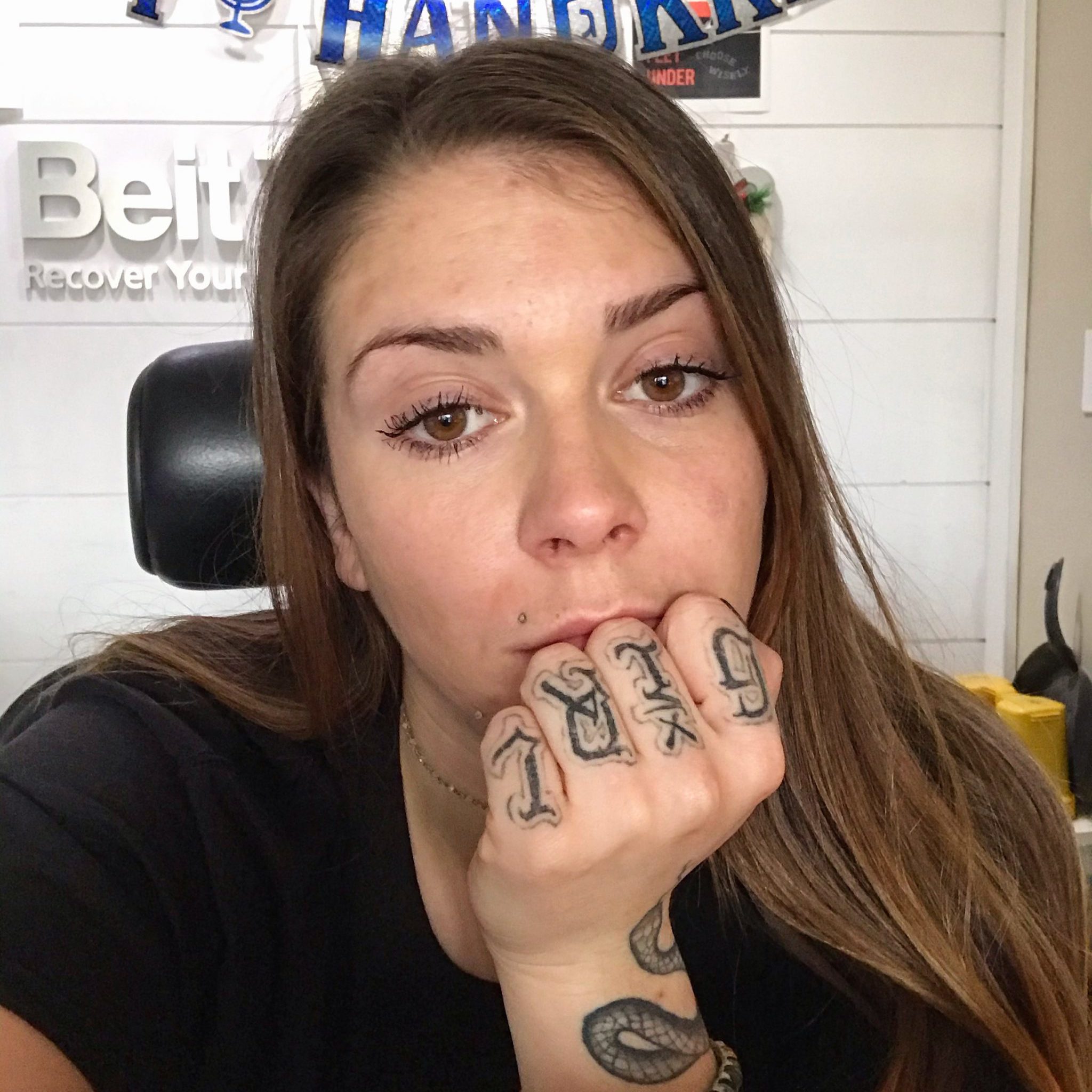Sarah H, a recent resident and intern at Beit T’Shuvah, has found a productive way to integrate her yetzer hara with her yetzer tov. Instead of using needles to use methamphetamine and heroin intravenously, Sarah is now training to become a phlebotomist, channeling that destructive urge into helping people. That’s just one of the ways she sees the uniqueness of Beit T’Shuvah.
Adopted at birth and raised in Santa Monica, Sarah remembers her childhood fondly. “They gave me everything that I wanted or needed. I wasn’t traumatized. There’s no really horrible thing that turned me to drugs.” But by the time she was 15, she was already taking Xanax, abusing alcohol, and acting out. She spent the next four years institutionalized in treatment centers.
At age 19, Sarah left her sober living home in Oregon and met someone living in a motel the next day. She remembers how she felt like she immediately belonged. “I thought that I had found my people, because I finally found people that related to me and accepted me for who I was.” She now sees the illusion of that community. “Now it’s obvious that it was because they were drug addicts and they’ll accept anybody.”
Sarah soon started using hard drugs, quickly progressing to IV use. She used continuously for the next five years, only stopping twice: once for a couple months and once during a 22-day jail sentence. She returned to Los Angeles to escape the local drug scene, ignoring the fact that easy availability of drugs here. Within a month, she was back at her old behavior. “I fell right back into the Venice drug-using crowd and running around the streets.”
Sarah found out about Beit T’Shuvah from a long-time friend who had been a resident here. “Although he wasn’t successful in the program, my friend told me that this was an amazing place.” Facing pressure from her family to get help and with a DUI charge hanging over her, she checked in to Beit T’Shuvah last June. She immediately knew she wasn’t ready. “I thought that maybe I still had something in me.” She left after a few days and used drugs for another two months. Like many addicts at the end of their using, she was frustrated that the drugs stopped working. “Instead of using being something that made me feel better, it made me feel worse every day. I just hated my life.”
Sarah returned late last August, this time for herself. As she integrated herself into the community here, she saw what makes Beit T’Shuvah special. “I feel that the people that work at Beit T’Shuvah actually care. It’s not like they just come in to punch a clock.” She also sees the continuity of the community, with so many of the clinical employees having gone through the program here. “They have experience in this community and have a deep understanding of Beit T’Shuvah.”
Sarah sees the positivity in the community as well. “I feel like there’s a lower rate of people living in toxicity and living in darkness and living in their using self. Instead, most people are trying to better themselves, and hold each other accountable on bettering themselves.”
During Sarah’s using days, she was distant from her family. “They had to tough love me and let me go through what I needed to go through.” She sees her relationship with her parents differently now. “They were there for me through everything. They only want for me to do well and want to see me be the person that they know that I am.”
Since discharging a week ago, Sarah has strived to maintain her connections with the community here, despite the restrictions brought on by the pandemic. Even though there isn’t currently an outpatient program for the substance abuse program, Sarah worked with Beit T’Shuvah and was allowed access to select extended-care groups on Zoom. She is also a regular attendee of Shabbat services and the AA meetings hosted on Zoom. “I can’t wait until they’re able to open the doors again to the community so I can see all my friends.”

